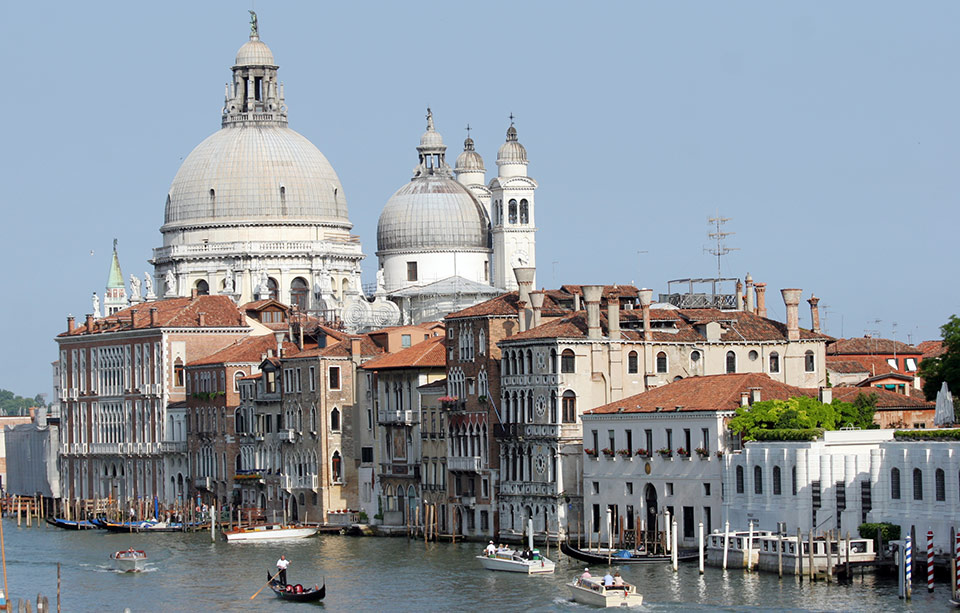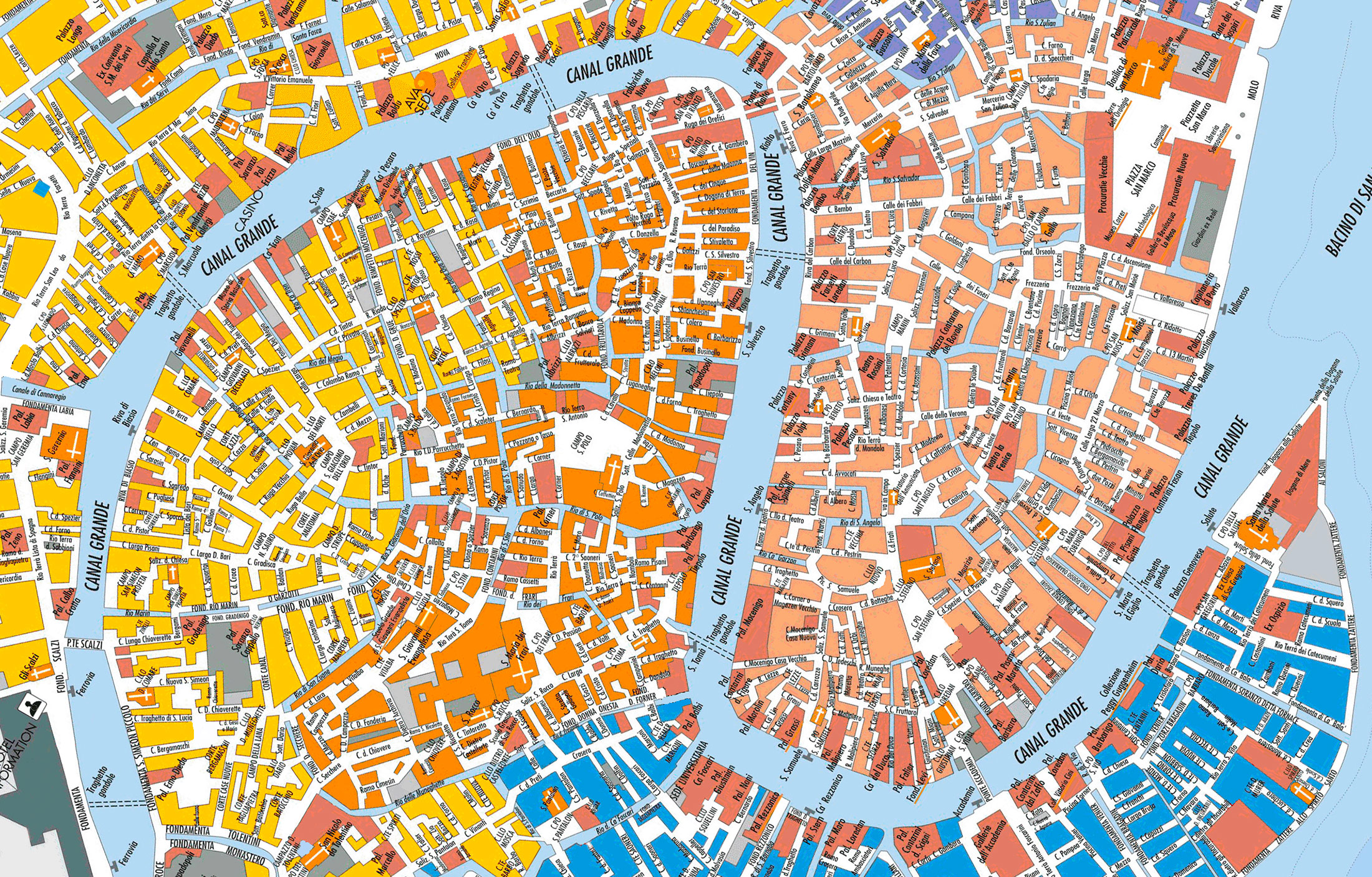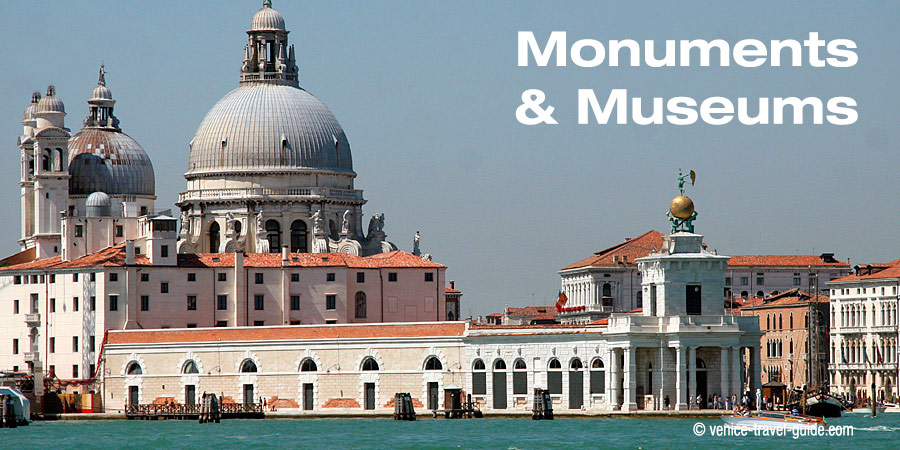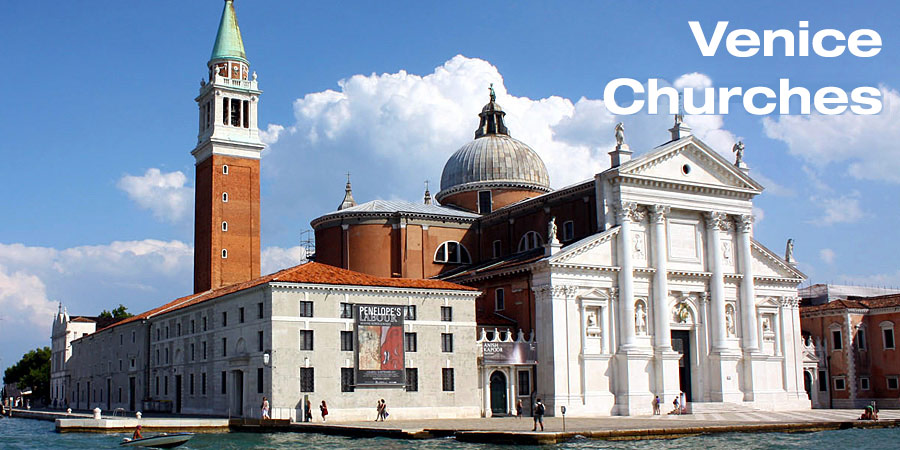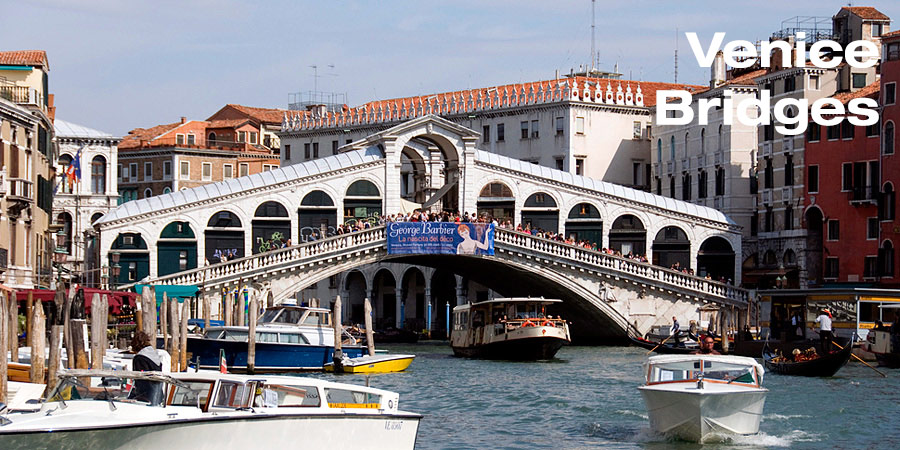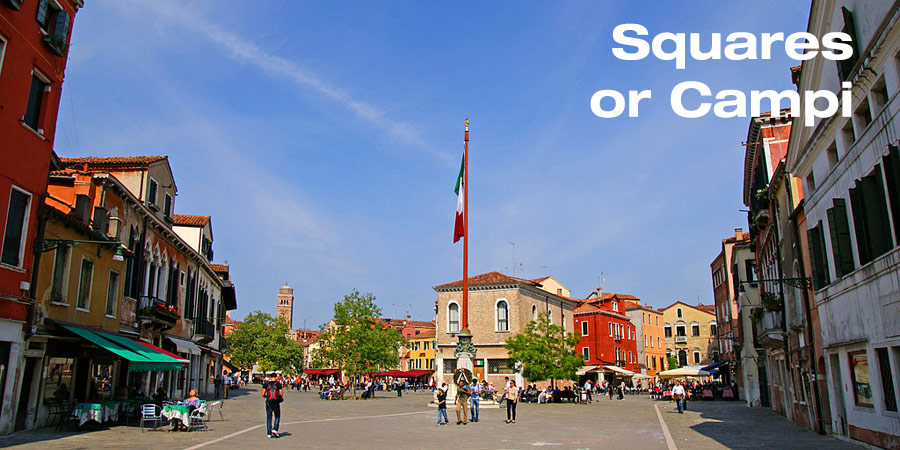For first-time visitors to the city, we offer a list of the most popular museums, sights, places to visit and main tourist attractions in Venice, Italy. The best things to see in Venice:
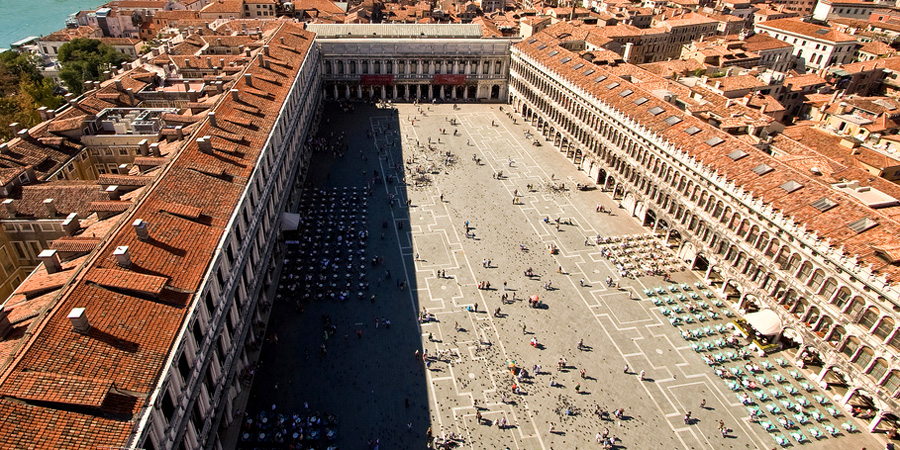
Piazza San Marco consists of an artistic complex of buildings in different styles that over time have created a harmonious setting to the square. Piazza San Marco is trapezoidal, and the Procuratie Vecchie and Procuratie Nuove run along the two extensive sides. They are known as old and new on the basis of the age of the buildings over the arcades.
The monumental Piazza San Marco is composed of three areas: the Piazza itself, the area enclosed between the Procuratie Vecchie and Nuove and the Basilica; the Piazzetta, in front of Palazzo Ducale and the Library; and the Piazzetta dei Leoncini, overlooking the Patriarchal Palace, so named for two statues of lions delimiting the central area elevated.
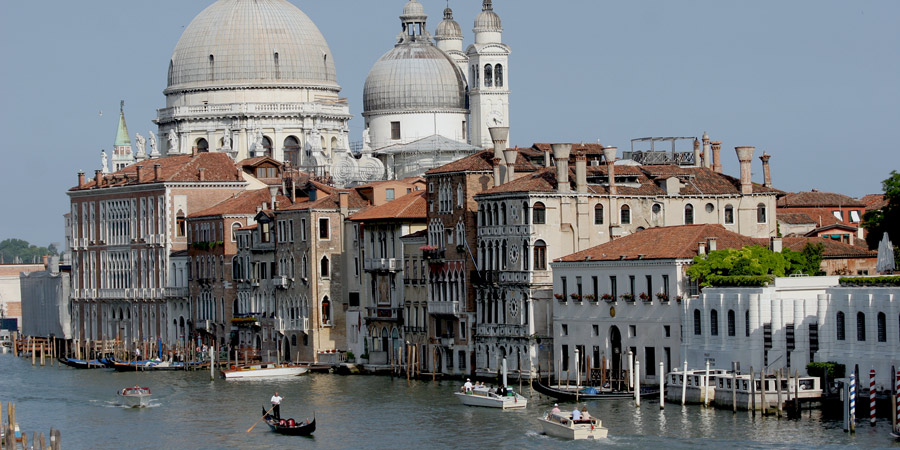
The Canal Grande is the main channel of Venice. Along 3800 meters (width from 30 to 70 m, average depth of 5 m), divided into two parts the old town by drawing an "S" that goes from the Ponte della Libertà to the Bacino di San Marco. Public transport is provided by vaporetti and water taxis, and many tourists ride the canal by gondola.
It is flanked along the length by magnificent buildings of the centuries twelfth to eighteenth, which manifest the welfare and art created by the Republic of Venice, making it one of the symbols of the city. Every year the Venetians live on old traditions such as the Regata Storica of Venice.
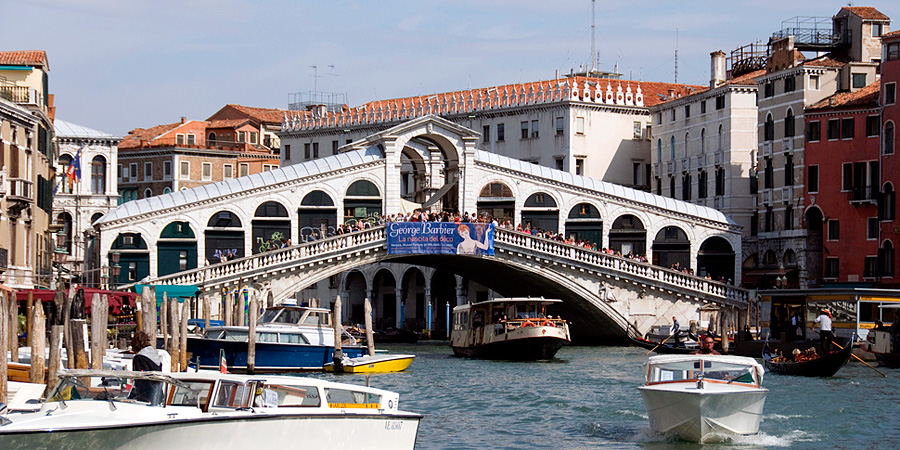
The Ponte di Rialto is one of four bridges, in addition to the Accademia Bridge, the Ponte degli Scalzi and Constitution Bridge, crossing the Grand Canal in Venice. Of the four, the Rialto Bridge is the oldest, the most famous and one of the architectural icons of Venice. The Rialto Bridge is an arched stone bridge lined with arcades on each side.
Under the arcades are many shops. The bridge was designed by Antonio da Ponte in 1591. The project was considered by some people too daring from the engineering point of view, even according the architect Vincenzo Scamozzi the bridge would have collapsed.
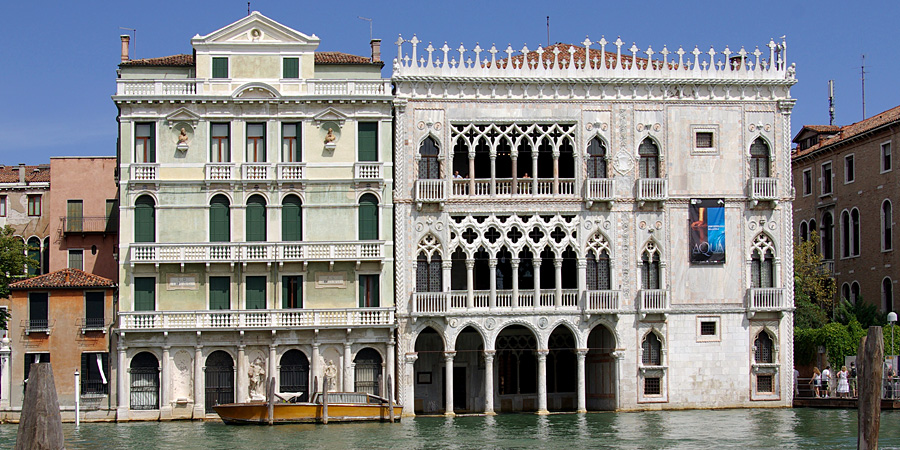
The Ca' d'Oro is a palace on the Grand Canal, one of the older palaces in the Venice. It is currently used as an art museum, the Galleria Giorgio Franchetti. The name Golden House derives from the fact that in the past some parts of the facade were covered with gold. The palace was built for the Contarini family between 1428 and 1430.
Internally the building has a C-shaped plant which is built around an open courtyard, in the center of which is placed a large marble well. The gallery houses a collection of works of art collected by Baron Giorgio Franchetti in his life. Among the most valuable works include the St. Sebastian by Andrea Mantegna, the Pietà with two angels by Marco Palmezzano, Venus in front of the mirror and Judith of Titian, vedute of Francesco Guardi, the Sleeping Venus by Paris Bordone and large portions of the frescoes Giorgione, from the facade of the Fondaco dei Tedeschi. The Vittore Carpaccio there are three canvases with the Stories of the Virgin.
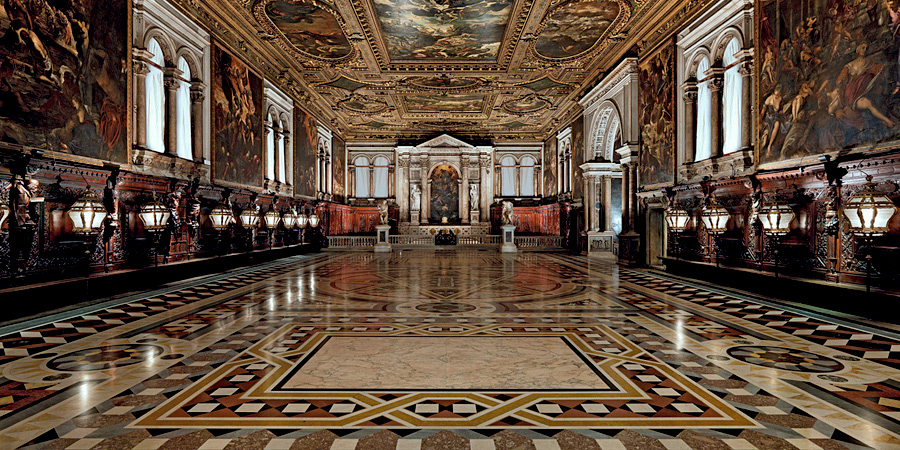
The Scuola Grande di San Rocco is a magnificent edifice, devoted to one of the greatest schools or fraternities of Venice. It is truly rich and extraordinary, and one can scarcely conceive how an association of almost one hundred private citizens could lavish so much wealth in erecting perfect museum of the fine arts.
This majestic and noble structure is adorned both within and without, with columns, cornices, carved work and figures remarkable both for design and execution. Inside, the enormous pictorial work developed by Tintoretto for the fraternity stands out especially.
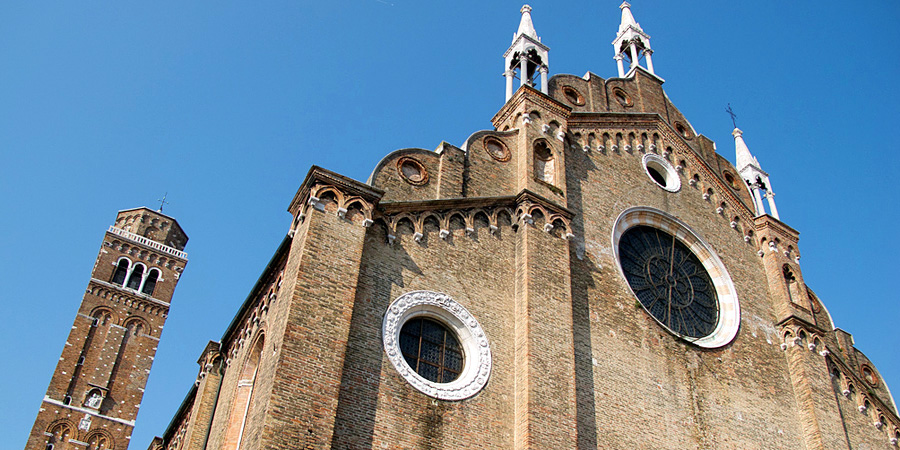
The Basilica di Santa Maria Gloriosa dei Frari, usually just called the Frari, is one of the main churches in Venice. The imposing brick edifice is built in Italian Gothic style. The bell tower, finished in 1396, is one of the highest in the city. It is located in the Campo dei Frari of the same name, in the San Polo district, and is dedicated to the Assumption of Mary.
The church has so many Renaissance masterpieces that it is rightly felt to be one of the most import Renaissance "museums" in the city. Some of them are the Assumption and the Pesaro altar-piece by Titan, the Madonna and Saints by Giovanni Bellini, the St John the Baptist by Donatello and the Monument to Canova.
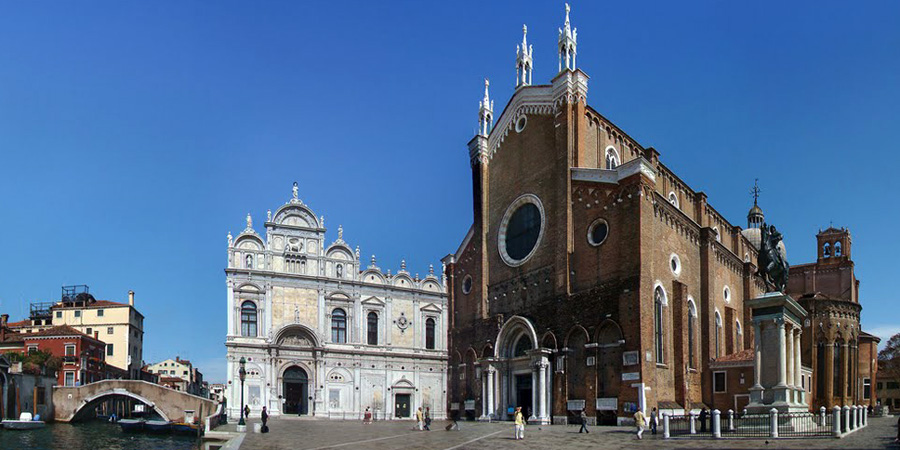
The Campo dei Santi Giovanni e Paolo is one of the largest squares of Venice, located in the Castello district, on the edge of Cannaregio. At the center of the campo, on a base of colored marble, there is the equestrian statue of Bartolomeo Colleoni by Verrocchio. Colleoni was a famous mercenary who fought for the Republic of Venice.
The impressive Santi Giovanni e Paolo church (San Zanipolo in Venetian dialect) closes the angle at the Scuola Grande di San Marco, a Renaissance building today the hospital of the city, which is also developed along the fondamenta del rio Mendicanti. The Scuola Grande de San Marco in ancient times was one of the main brotherhoods dedicated to carrying out works of charity.
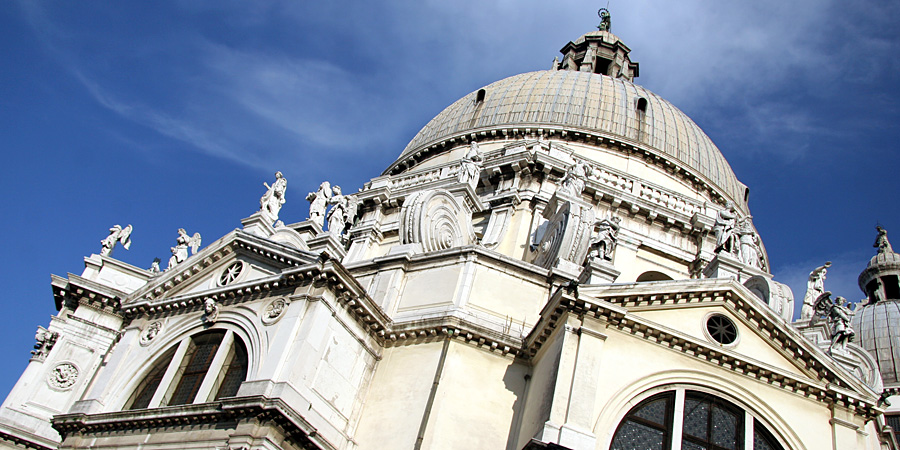
In 1630 the government of the Serenissima Republic decided to build a votive temple dedicated to the Virgin Mary to celebrate the end of the Plague which had decimated more than a third of the Venetian population, the Basilica di Santa Maria della Salute. Of the eleven projects presented, Baldassare Longhena's was considered the best.
The church was given an octagonal form and raised almost theatrically onto a sort of platform preceded by a series of steps. The construction, externally punctuated by the prospects of the six chapels, is dominated by a large cupola, surrounded by a flock of angels. The church is used each year for a procession during the Feast of the Salute, which is still one of the Venetians' favourite events. Here you will find the a marvellous Byzantine icon, a polychrome marble floor and many paintings by Titian, Tintoretto and Luca Giordano.
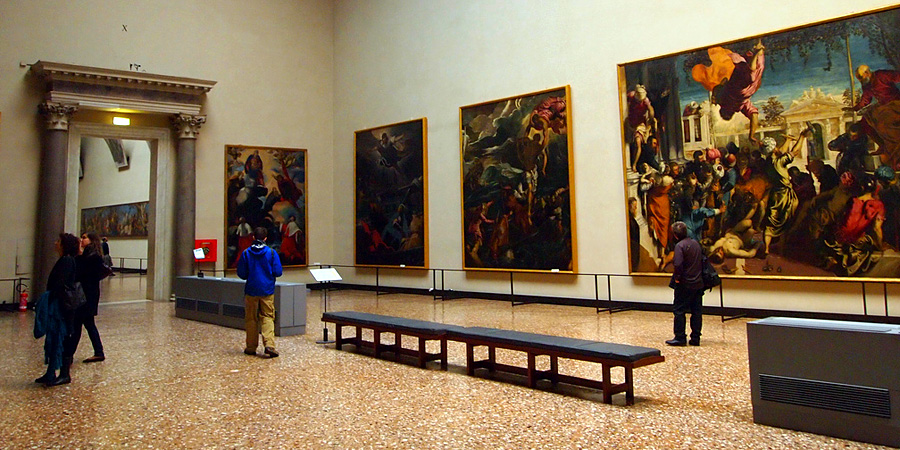
The Gallerie dell'Accademia is the main museum of Venice, which contains the best collection of Venetian art, especially related to the paintings of the period from the 14th century to the 18th century. The rich collection of paintings is represented by artists such as Giorgione, Giovanni Bellini, Carpaccio, Veronese, Tintoretto and Titian.
There are also preserved other forms of art such as sculptures and drawings, including the famous Uomo vitruviano by Leonardo da Vinci (shown only on special occasions). The Accademia Galleries are located in the Dorsoduro district, at the foot of the Ponte dell'Accademia, in what was until the early nineteenth century, the vast complex of the church of Santa Maria della Carità, the Monastery built by Palladio and the Scuola Grande di Santa Maria della Carità. They take their name from the Accademia di Belle Arti (Fine Arts Academy) opened in 1817 and they shared the complex until 2004.
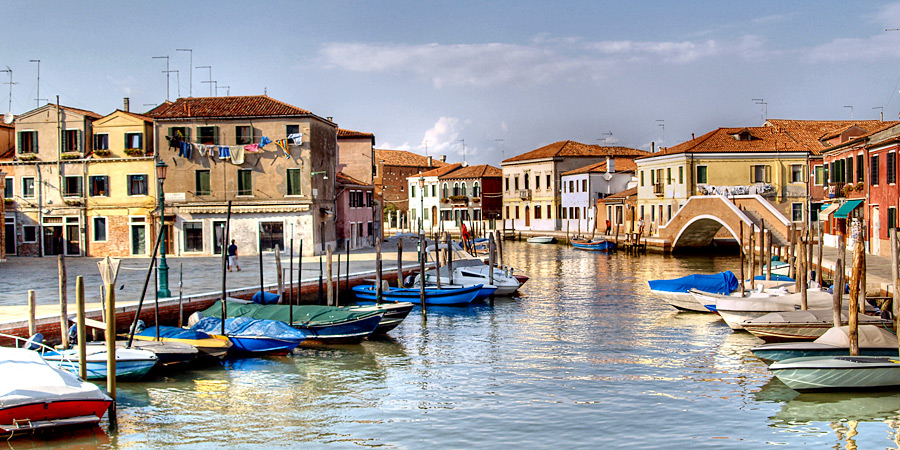
Murano is an island in the Venetian Lagoon, located north-east of Venice, composed of seven smaller islands, is known around the world for the craft of glassmaking. Murano is home to the Museo Vetrario or Glass Museum in the Palazzo Giustinian, which holds displays on the history of glassmaking.
Burano is an island known for its typical brightly colored houses, but also for the centuries-old lace work and gastronomic traditions.


